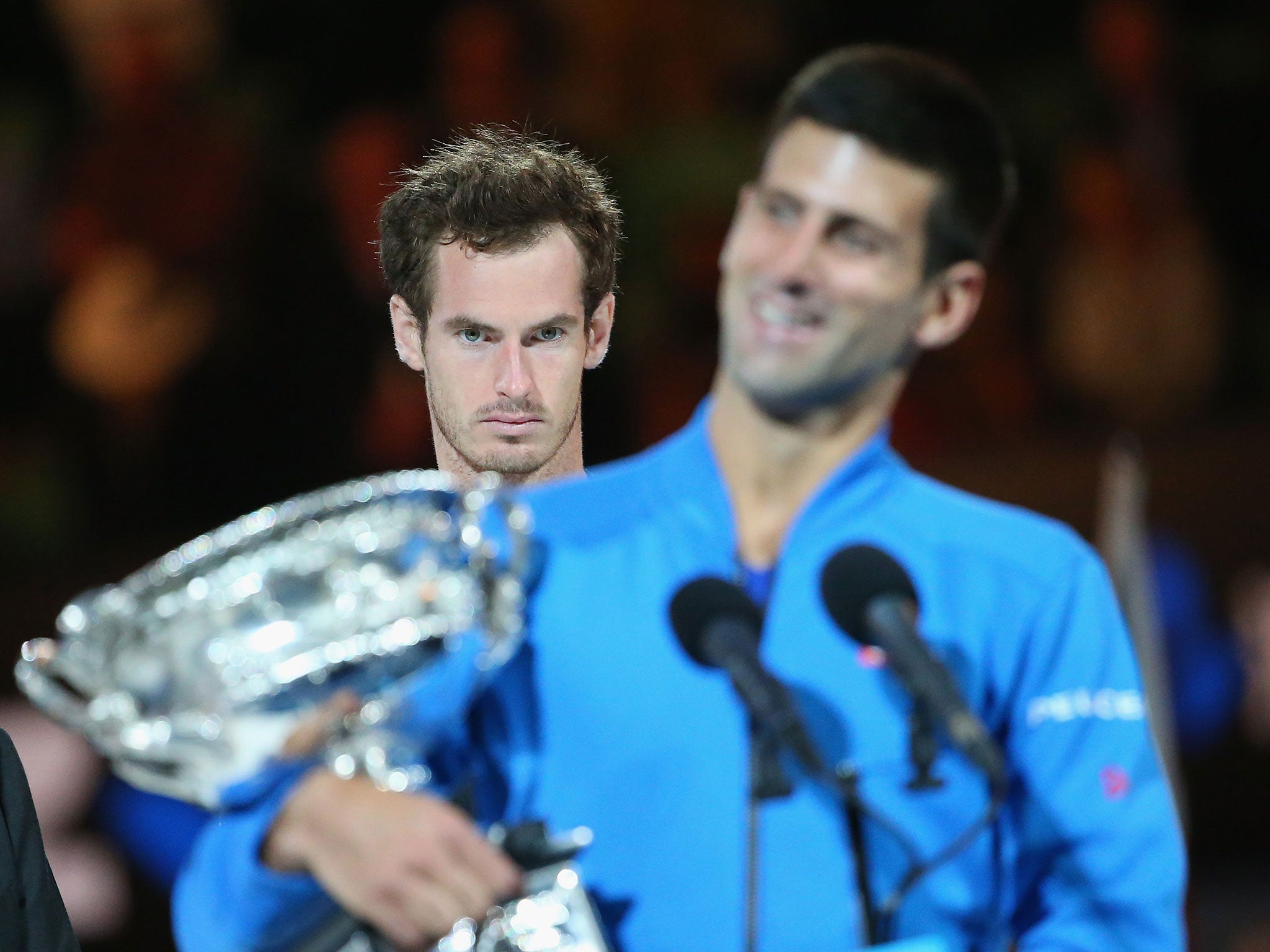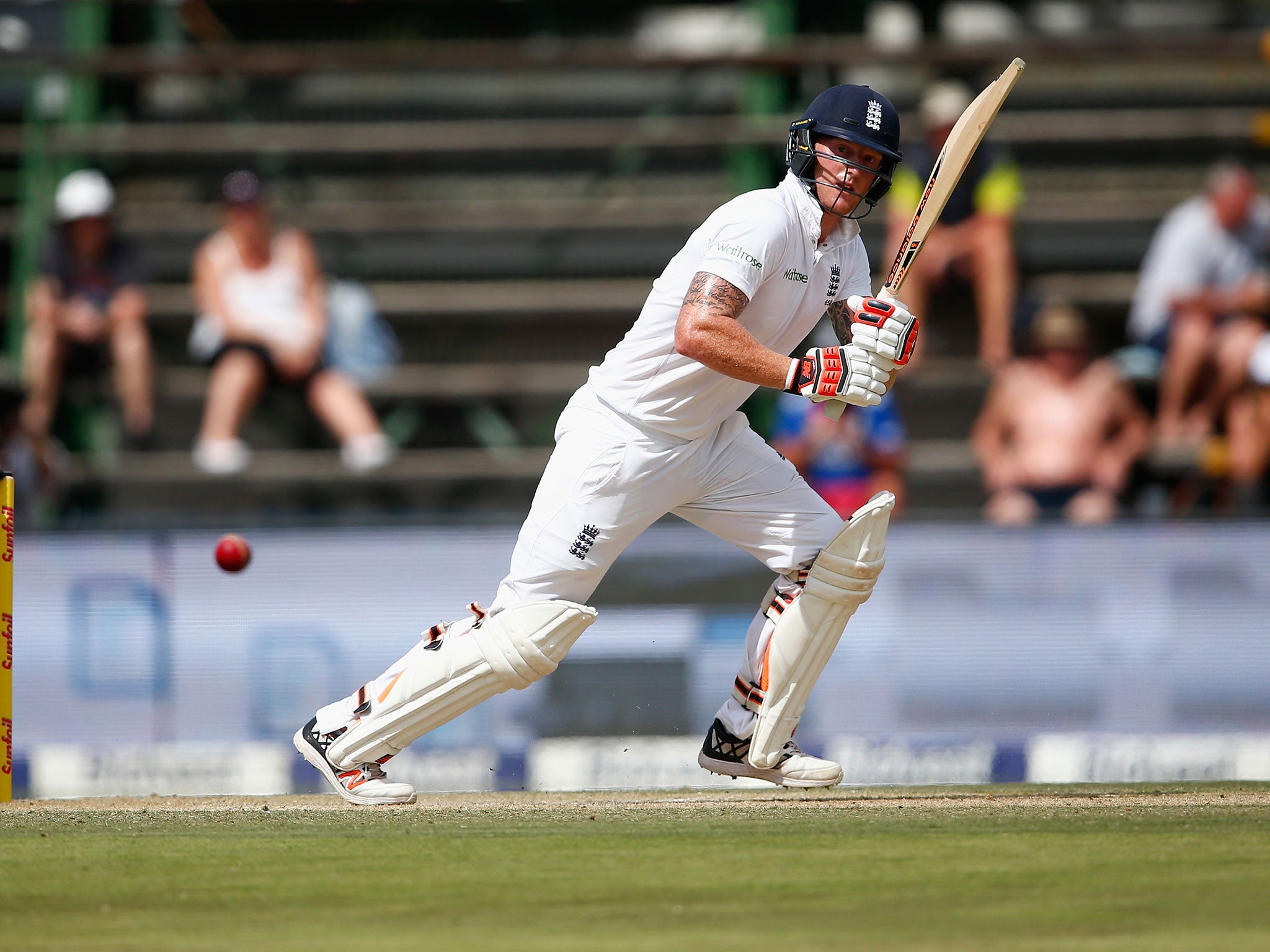Australian Open 2016: Andy Murray needs to take lesson from Ben Stokes in how to grasp the nettle
COMMENT: What he has lacked are the mental attributes required to prevail in sport’s kill zone

The preparation has gone well, lots of high-intensity hitting with reintegrated coach Amélie Mauresmo after a decent run in the Hopman Cup. The practice has centred on problematic scenarios presented by nemesis Novak Djokovic, whom he could meet again in the Australian Open final, and Roger Federer, against whom he struggled repeatedly in 2015.
There is, of course, a paternal variable dancing about the mind of Andy Murray with which he has not had to contend before, and if we were to be hyper-cynical, we might detect a comfort blanket, a reason not to be too disappointed should he succumb yet again to the machine-like virtues of Djokovic or the finer arts of Federer.
He will, he said, be outta there if wife Kim goes into labour ahead of her mid-February due date. Only a miserable bastard would want to be critical of Murray on the issue of fatherhood. He has fashioned the most significant career in British tennis in more than 70 years and thus deserves our respect. But… there is always a but.
Murray arrives in Melbourne for the first Grand Slam of the season in rude health, free of the back concerns that have hampered his efforts in the recent past. He has lost four times in the final here, so he knows how to negotiate the fortnight. What he has lacked over the spread of his career are the mental attributes required to prevail in the sporting kill zone, the kind that make Djokovic and Federer lethal, cold-hearted finishers.
Only Ivan Lendl managed to unlock the brute in Murray, somehow bypassing the deep-seated sensitivities that frustratingly hold him back against the very best. There is always a plan, as we have seen in his work with Mauresmo. Technically, Murray understands the demand, but does he believe in himself enough? He did in the company of Lendl, winning two Grand Slam titles at the expense of Djokovic at the US Open and Wimbledon, and Olympic gold in London, where he skinned Federer.
In those encounters it seemed Murray stopped thinking and just did, tapping into a visceral side of his character we did not know he had. A discussion of this sort takes us to the edge of quackery. There is too little known about the drivers that make winners out of people of similar talents.
Walk down the range at any golf tournament and you will see 150 professionals, each with the ability to compress a golf ball 300 yards and stop on a sixpence, but when the whistle blows, Jordan Spieth or Rory McIlroy taps the winning ball into the hole. In Spieth’s case, he is not even the greatest ball-striker, but when he is standing over a putt there are an absence of doubt and sureness of touch that separate him from the rest.
Murray’s battle, it seems to me, is with the latter, with doubt. Witness what can be achieved by the athlete who keeps the mind quiet in the middle. Cricket is a game that has tortured the sensitive. What mountain of runs might Mark Ramprakash or Graeme Hick have compiled had they found the keys to a clear mind in the Test arena? What might they have done with the vim of Ben Stokes?

Stuart Broad and Joe Root vied for the man of the match accolade at the Wanderers. Broad with the ball in South Africa’s second innings and Root with the bat in the first made contributions without which England could not have won, yet, as Root himself acknowledged, the tone and pitch of the battle were transformed when Stokes walked out to bat with England four down for just 91.
Root had fiddled about unconvincingly in the early overs, wafting at balls that might on another day have taken the edge. When Stokes arrived at the crease to smash 58 from 54 deliveries, the sap rose correspondingly in the zeitgeist of Root.
I love this commentary from Root, which to me gets to the nub of it: “He [Stokes] takes pressure off you at the other end when he comes in and plays that way, that aggressively. It’s just natural, when you see someone scoring like that, putting the bowlers under pressure, it brings that out in your own game as well.
“Ben’s not very talkative in the middle, he’s very different to how he is off the field – great craic – but out there batting it’s all about concentrating on being as destructive as possible. The way we batted, especially when we tried to put them back under pressure, was really important to us.”
Somewhere in Root’s appreciation of the Stokes alchemy is a lesson for Murray. The point about pressure is the key. Sport is a different game when played under the cosh. Stokes has an instinctive understanding of this. If he were to stick a post-it note on Andy’s racket should he meet Djokovic in the final it might read: “Come on! Let’s ’ave it.” And it wouldn’t be a reference to the impending baby.
Join our commenting forum
Join thought-provoking conversations, follow other Independent readers and see their replies
Comments